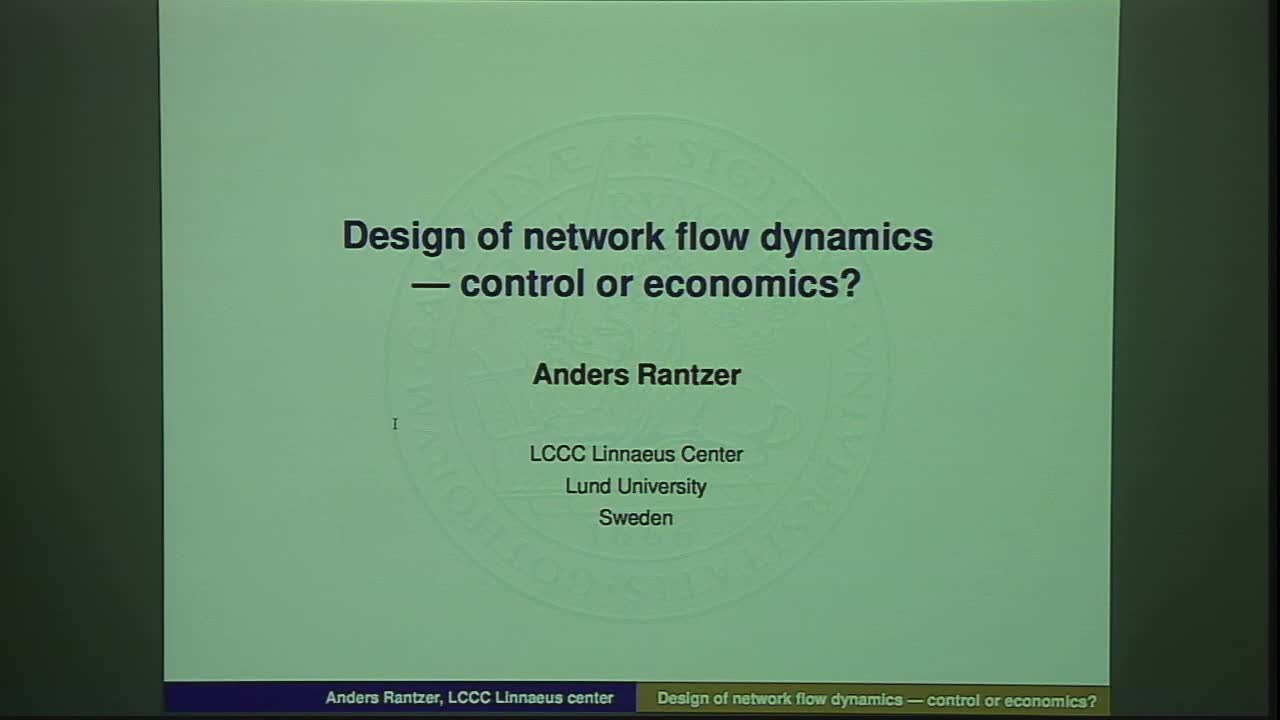Distributed control and exchange economics: Two approaches to design of network flow dynamics
Presenter
October 19, 2015
Keywords:
- distributed control, exchange economics
Abstract
Consider a network where each node is generating products using a time-varying supply of resources and consumes products to satisfy a time-varying set of needs. The actions of each node are governed by a desire to optimize a given utility function. Two main control approaches will be discussed. In the first approach a distributed control law is designed to attenuate the effect of disturbances. A global performance objective for the network dynamics is optimized. This can be done in a scalable way using the theory for positive/monotone systems. In the second approach, no global performance objective is defined. Instead, local objectives at the network nodes are coordinated according to the paradigm of exchange economics. The theory for monotone systems is again instrumental, this time to prove existence of a unique equilibrium and to analyze the price dynamics near this equilibrium.
